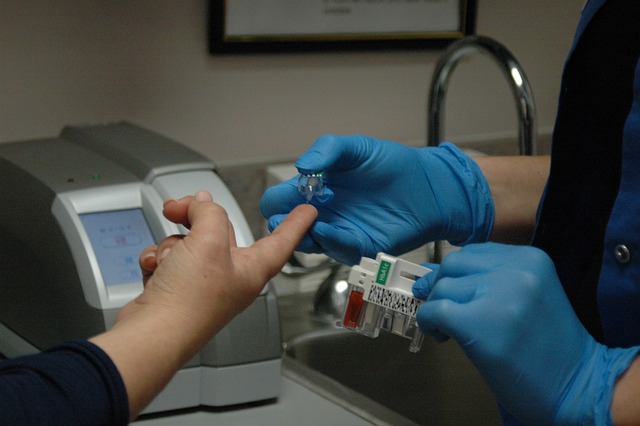
- What causes type 2 diabetes? Type 2 diabetes is caused by a combination of genetic and environmental factors. It occurs when the body becomes resistant to the effects of insulin, a hormone that regulates blood sugar levels. This resistance leads to high blood sugar levels, which can damage various organs and systems in the body over time. Some of the risk factors for type 2 diabetes include being overweight or obese, having a sedentary lifestyle, having a family history of diabetes, and belonging to certain racial or ethnic groups (such as African American, Latino, Native American, or Asian American).
- How is type 2 diabetes diagnosed? Type 2 diabetes is typically diagnosed through a combination of blood tests. The most common test used to diagnose type 2 diabetes is called the A1C test, which measures the average blood sugar level over the past two to three months. Other tests that may be used to diagnose type 2 diabetes include the fasting plasma glucose test (FPG) or the oral glucose tolerance test (OGTT).

- How does type 2 diabetes differ from type 1 diabetes? Type 1 diabetes is an autoimmune disorder in which the body’s immune system mistakenly attacks and destroys the cells in the pancreas that produce insulin. In contrast, type 2 diabetes is a metabolic disorder that develops when the body becomes resistant to the effects of insulin. While people with type 1 diabetes require insulin therapy to manage their condition, many people with type 2 diabetes can manage their condition through lifestyle changes such as diet and exercise.
- What are the common symptoms of type 2 diabetes? Some of the common symptoms of type 2 diabetes include increased thirst and urination, blurred vision, fatigue, slow wound healing, and tingling or numbness in the hands and feet. However, many people with type 2 diabetes may not have any symptoms at all in the early stages of the disease.
If you have diabetes, pre-diabetes or know someone with these conditions then read this carefully as the following information can save your life. Discover How To COMPLETELY REVERSE Type 2 Diabetes With An All Natural, Proven Method! For more information – Click Here Now
- What are the long-term complications of type 2 diabetes? Type 2 diabetes can lead to a variety of serious health complications over time, including heart disease, stroke, kidney damage, nerve damage, amputations, and blindness. It can also increase the risk of certain types of cancer.
- How is type 2 diabetes treated? Treatment for type 2 diabetes typically includes a combination of lifestyle changes, such as diet and exercise, and medication. The goal of treatment is to lower blood sugar levels and reduce the risk of complications. Some common medications used to treat type 2 diabetes include metformin, sulfonylureas, DPP-4 inhibitors, GLP-1 receptor agonists, and SGLT2 inhibitors.
- What are the recommended lifestyle changes for managing type 2 diabetes? Lifestyle changes that can help manage type 2 diabetes include losing weight, eating a healthy diet, and getting regular physical activity. Other recommended lifestyle changes include quitting smoking, managing stress, and getting enough sleep.
- How often should blood sugar levels be checked? The frequency of blood sugar level checks will depend on the individual’s condition, treatment plan and other factors. It is best to consult with a medical professional for the best schedule for you.
- What are the recommended blood sugar levels for someone with type 2 diabetes? The recommended blood sugar levels for someone with type 2 diabetes will depend on various factors such as age, sex, and overall health. In general, the goal is to keep blood sugar levels as close to normal as possible, which is typically between 70 and 130 mg/dL before a meal and less than 180 mg/dL two hours after a meal.
- How can I prevent type 2 diabetes from developing or progressing? There are several steps you can take to reduce your risk of developing type 2 diabetes or delaying its progression. These include maintaining a healthy weight, eating a balanced diet, getting regular physical activity, and not smoking. Additionally, managing other risk factors such as high blood pressure and high cholesterol can also help prevent type 2 diabetes.
- Are there any new treatments or technologies for type 2 diabetes that I should know about? There are new treatments and technologies for type 2 diabetes that are being researched and developed, including new medications, insulin pumps, and continuous glucose monitoring systems. However, it’s important to consult with your doctor to determine what is the best treatment option for you.
- Are there any new research studies or clinical trials that I could participate in? There are many ongoing research studies and clinical trials for type 2 diabetes. Consult with your doctor to find out if you qualify for any of them.
- Are there any support groups or resources available for people with type 2 diabetes? Yes, there are many support groups and resources available for people with type 2 diabetes. These can include online support groups, local diabetes education classes, and counseling services. Your healthcare provider may also be able to recommend resources in your area.
- Are there any specific dietary restrictions or recommendations for people with type 2 diabetes? People with type 2 diabetes are usually recommended to follow a diet that is low in saturated and trans fats, cholesterol, and added sugars. They should also aim to eat plenty of fruits, vegetables, and whole grains. It is also important to maintain a healthy weight and to eat a well-balanced diet.
- Are there any medications that can help manage type 2 diabetes? There are several medications that can help manage type 2 diabetes. These include metformin, sulfonylureas, DPP-4 inhibitors, GLP-1 receptor agonists, and SGLT2 inhibitors. Your healthcare provider can help determine the best medication or combination of medications for you.
- How can I monitor my progress in managing my type 2 diabetes? Monitoring your progress in managing type 2 diabetes can include regular check-ins with your healthcare provider, monitoring blood sugar levels, and tracking any symptoms or complications. Keeping a log of your blood sugar levels, diet, and physical activity can also be helpful in monitoring your progress.
- Are there any potential side-effects of the medications used to treat type 2 diabetes? All medications have potential side effects and the medications used to treat type 2 diabetes are no exception. These can include gastrointestinal symptoms, weight gain, hypoglycemia (low blood sugar) and others. It is important to discuss potential side effects with your healthcare provider and to report any side effects you experience.
- Are there any risks associated with having type 2 diabetes during pregnancy? Having type 2 diabetes during pregnancy can increase the risk of certain complications for both the mother and baby. These can include gestational diabetes, pre-eclampsia, and macrosomia (a condition in which the baby is larger than normal). It is important for women with type 2 diabetes to work closely with their healthcare provider to manage their condition during pregnancy.
- How does type 2 diabetes affect older adults? Type 2 diabetes can be more difficult to manage in older adults due to age-related changes in the body and an increased risk of complications. Additionally, older adults are more likely to have other health conditions that can complicate diabetes management.
If you have diabetes, pre-diabetes or know someone with these conditions then read this carefully as the following information can save your life. Discover How To COMPLETELY REVERSE Type 2 Diabetes With An All Natural, Proven Method! For more information – Click Here Now
- How does type 2 diabetes affect children and adolescents? Type 2 diabetes is becoming more common in children and adolescents due to the rise in obesity. Children and adolescents with type 2 diabetes are at risk for the same complications as adults, such as heart disease and kidney damage. It is important for children and adolescents with type 2 diabetes to receive early and ongoing care from a healthcare provider who is experienced in treating pediatric diabetes. This may include close monitoring of blood sugar levels, regular check-ins with a diabetes educator or dietitian, and adjustments to diet, exercise, and medication as needed. Additionally, it’s also important for children and adolescents to maintain a healthy weight and to make lifestyle changes that support diabetes management.
MEDICAL DISCLAIMER
The content and media provided on Medicalcollective.com is for informational purposes only and is not intended to be a substitute for professional medical advice. Always consult with a qualified healthcare professional for any questions or concerns regarding your health. The advice of a medical professional should never be disregarded or delayed based on information found on this website.
In case of a medical emergency, seek immediate help by calling your doctor, going to the nearest emergency department, or calling emergency services. Any reliance on information provided by Medicalcollective.com is done so at your own risk.
Please note that links to external websites or educational materials not created by Medicalcollective.com are followed at your own risk. Medicalcollective.com cannot be held responsible for any claims made by third party websites or educational providers.

